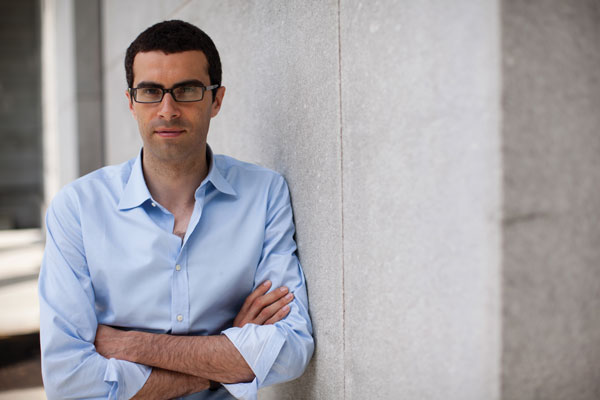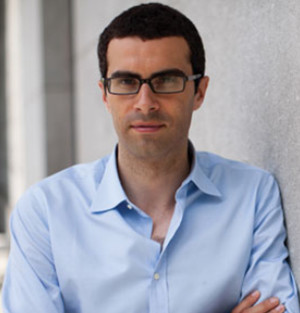We must prepare for a possibly turbulent transition to a new international monetary system

The international monetary system has undergone several transformations over the past two centuries, as it moved from the gold standard to the current arrangement of flexible exchange rates.
Yet there was one constant feature: the system was almost always dominated by a single currency. Until World War I, it was the pound sterling. After a turbulent sterling-dollar era between the two world wars, the dollar ultimately prevailed following World War II.
The reign of the dollar survived the end of the dollar exchange standard instituted by the Bretton Woods Agreement and emerged from the global financial crisis even stronger than before. At the same time, new competitors—the euro and the renminbi—are emerging. How will this geopolitical monetary competition play out? How should we prepare? By heeding the lessons of history, we can trace out scenarios and draw contingency plans for the next phase of the international monetary system.
Dollar dominance
Today, the dominance of the dollar makes the United States the world’s banker. As such, the country enjoys exorbitant privileges, in the words of Valéry Giscard d’Estaing, and bears exorbitant duties. Directly or indirectly, it is the preeminent supplier of safe and liquid assets to the rest of the world, the issuer of the dominant currency of trade invoicing, the strongest force in global monetary policy, and the main lender of last resort.
These attributes reinforce one another. The dollar’s dominance in trade invoicing makes it more attractive to borrow in dollars, which in turn makes it more desirable to price in dollars; the US role as lender of last resort makes it safer to borrow in dollars, which in turn increases the responsibility of the United States in times of crisis. All these factors consolidate the special position of the United States.
This is not to say that all is well in the dollar-centric international monetary system. There is a growing and seemingly insatiable global demand for safe assets, or assets that do not carry a high risk of loss across all types of market cycles. The resulting shortage of safe assets has brought interest rates on relatively risk-free investments down to historically low levels and catalyzed serious and persistent global challenges to both macroeconomic stability (by increasing the probability of hitting the zero lower bound) and financial stability (by pushing investors to lever up and take risks to reach for yield).
It also creates the conditions for a new so-called Triffin dilemma: over the long run, the only way the United States can accommodate this growing global demand for safe assets is by stretching its fiscal and financial capacities, which could strain investors’ trust in the dollar and lead to volatility and self-fulfilling crises. It is a similar mechanism, foreseen a decade earlier by the Belgian economist Robert Triffin, that brought down the Bretton Woods system by forcing the United States to go off gold and float the dollar following a run on its currency.
The ineluctable arrival of new competitors, such as the euro and the renminbi, in the global currency game could provide a way out in the long run. And competition could deliver its usual benefits by making the international monetary system safer and more efficient. This competition would resorb the shortage of safe assets, eliminate the new Triffin dilemma, and relieve the United States of its exorbitant duties and privileges.
Concrete steps
However, a truly multipolar international monetary system will not be here tomorrow. The euro area and China are taking sometimes aggressive steps to strengthen the international role of their currencies, but reputation and institutions are not built overnight, and coordination on the status quo can be persistent.
Furthermore, the monetary instability of the interwar years, when the pound sterling and the dollar coexisted, should remind us that, in the medium term, more instability could be on the way. Some of this instability, according to the Estonian economist Ragnar Nurkse, arose from the actions of investors who frequently rebalanced their portfolios between currencies. The lesson for our times is that as competitors to the dollar emerge, international investors will have a place to go if they decide to abandon the dollar. This could exacerbate destabilizing speculation and lead to self-fulfilling confidence crises.
In sum, it will take time for the benefits of monetary competition to materialize. In the meantime, investors should prepare for a potentially disorderly period of transition to a multipolar international monetary system.
The international community can take concrete steps to prepare for these challenges. It could, of course, try to encourage and hasten the transition to a truly multipolar system. But the most important and most actionable priority is to strengthen the global financial safety net, with the dual objective of making the global financial system more resilient and alleviating the global safe asset shortage, thereby mitigating its destabilizing consequences.
Some concrete measures involve preserving the ability of central banks and governments to act as lenders of last resort in their own countries. Other measures encourage decentralized arrangements between countries: reserve-sharing agreements through which several countries pool their reserves in order to economize and bilateral swap line agreements between central banks that allow one bank to borrow another’s currency against collateral. Finally, other measures involve bolstering the existing facilities and expanding the financial capacity of the international organization at the center of the multilateral system—the IMF—as well as strengthening its support to decentralized arrangements.
Perhaps more radically, we could envision a larger role for the IMF by adapting and modernizing some old ideas from the defunct Keynes-Triffin plans. The IMF could centralize reserve-sharing agreements by administering a global deposit facility built on the existing special drawing right. It could also multilateralize the decentralized, sparse, and discretionary network of bilateral central bank swap lines and enhance it with a star-shaped structure. This could be accomplished either by acting as a central counterparty clearinghouse and underwriter of bilateral swap lines or by offering short-term swap facilities of its own.
The economist Rudiger Dornbusch, of the Massachusetts Institute of Technology, famously said that “in economics, things take longer to happen than you think they will, and then they happen faster than you thought they could.” It is a good time to prepare.
Opinions expressed in articles and other materials are those of the authors; they do not necessarily reflect IMF policy.







